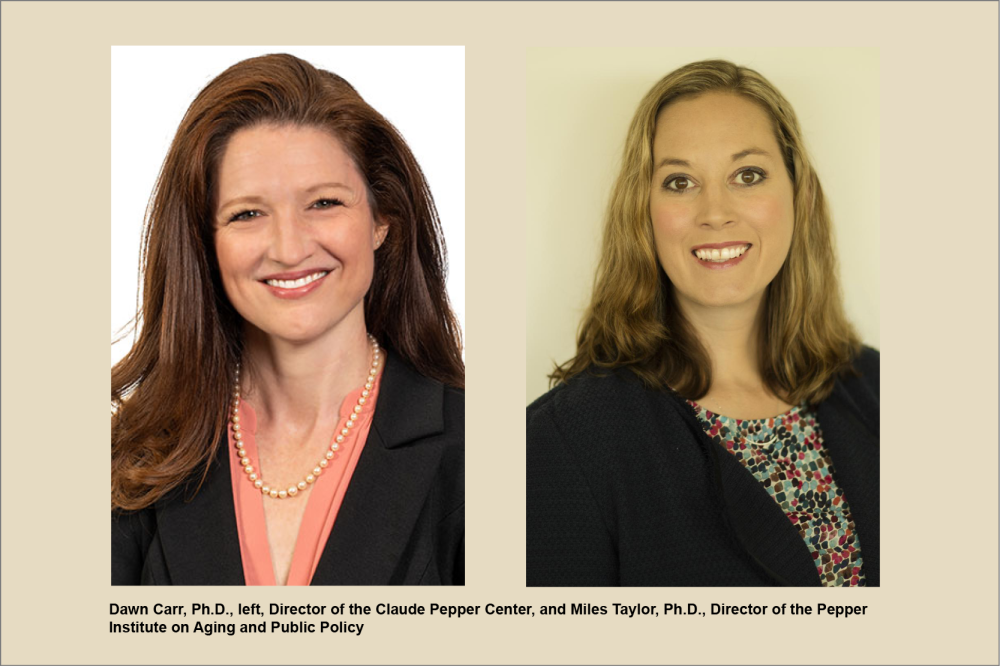Dawn Carr, Miles Taylor win $400,000 NIH grant to study psychological resiliency

Dawn Carr and Miles Taylor, both Faculty Affiliates of the Institute for Successful Longevity, have received a grant from the National Institutes of Health for more than $400,000 to study the health effects of psychological resiliency.
Carr, Associate Professor of Sociology and Director of FSU’s Claude Pepper Center, and Taylor, Professor of Sociology and Director of FSU’s Pepper Institute on Aging and Public Policy, will be co-principal investigators on the study “Psychological Resilience as a Health Resource in the Context of Stressful Life Events in Later Life.” They will lead a team including Florida State students and outside consultants.
“I’m very pleased Dr. Carr and Dr. Taylor received this NIH grant to expand our knowledge about resiliency,” said Tim Chapin, dean of the College of Social Sciences and Public Policy. “This study will help us to illuminate how people can become more adaptable and create effective, targeted interventions to bolster resilience prior to experiencing stressors.”
The project builds on previous collaborative research by Carr and Taylor that shows resilience is four to 10 times more beneficial to health outcomes than other psychological resources such as sense of control and optimism.
They hypothesize that people with high levels of psychological resilience tend to handle stressful experiences more effectively, decreasing physical and mental health consequences over time.
The NIH grant will allow Carr and Taylor to evaluate further whether resilience benefits all people and which stressors it particularly helps.
“Our previous work has established that psychological resilience has a strong connection to health overall,” Taylor said. “But now we get to dig deeper to understand more about when, how and for whom this resource is most protective.”
Rather than a “one size fits all” model of resilience, the researchers hope to draw from a range of personal and social resources when dealing with stress and adversity.
Carr explained how their research could help pinpoint when resilience is most beneficial.
“In later life, we are more likely to experience a variety of stressors such as spousal loss, a major job transition, or a health event,” she said. “This project can establish under which circumstances psychological resilience has a protective effect.”
The research team will use longitudinal data nationally representative of adults over 50 years old to capture a broad pool of people, experiences, and long-term health outcomes.












